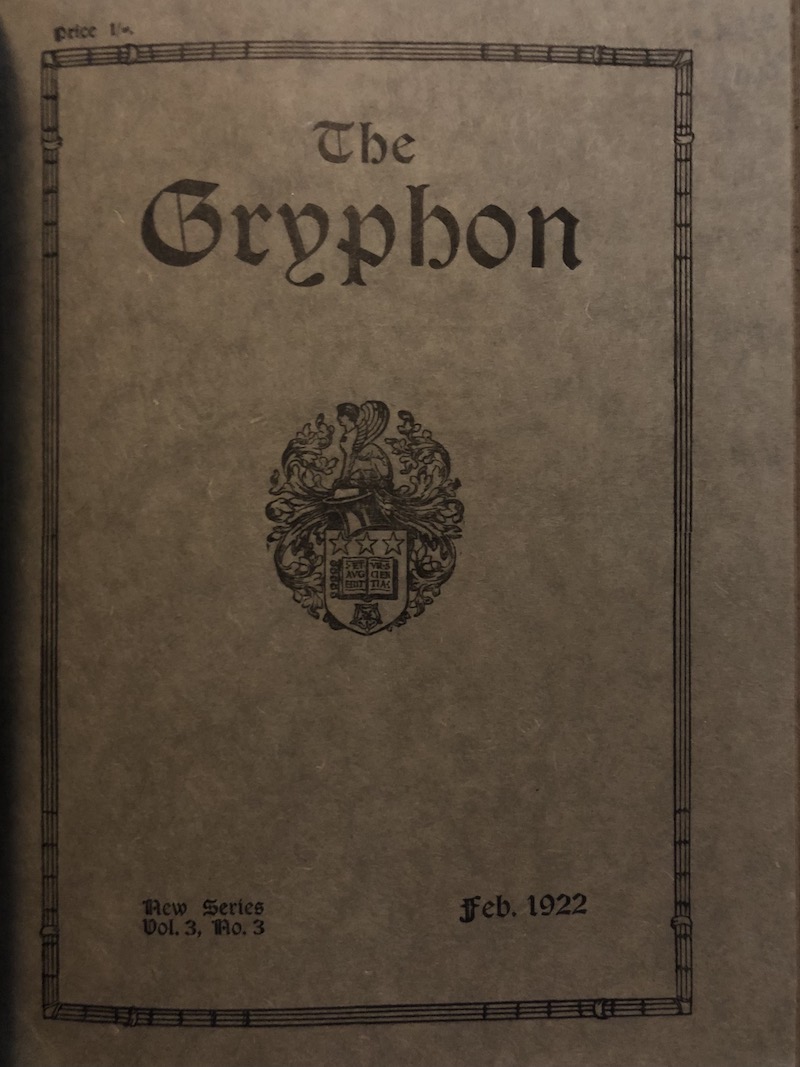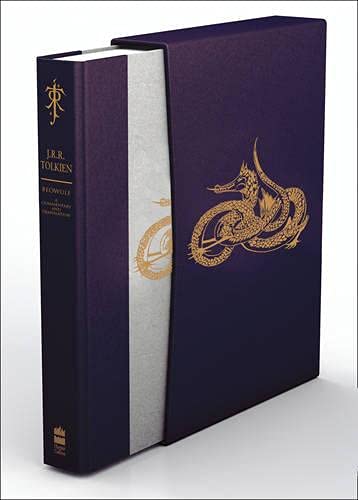12
Ring Out the Old, Ring in the New
26 Oct, 2021
2021-10-26 3:37:45 AM UTC
2021-10-26 3:37:45 AM UTC
The title of this post is also the title of an article that appears in the February 1922 issue of The Gryphon (Vol. 3, no. 3). At this time, JRR Tolkien was in his second year of his appointment as Reader in English Language at the University, and Hammond and Scull list a variety of lectures or classes that Tolkien may have had responsibility for: History of the English Language to the Close of the Fourteenth Century, Old English Verse with a special study of Beowulf, The History of English, Old and Middle English Texts, Old and Middle English Dialects, and a handful of others.
Someone (credited as "Glackso" at the end of the article), writes the following article:
Section B goes on to ask questions on topics around Shakespeare, Paradise Lost, Wordsworth, Kubla Khan and Charles Dickens, among others.
There is absolutely no indication that Tolkien had anything to do with this article, either as inspiration or authorship, but I found it tantalizing that someone felt this subject matter would be an "aid to the career" of the Leeds University students, and that all four questions are so closely related to work (and pursuits of pleasure) that so interested Tolkien.
It is also hard to avoid associating the title with future writings of Tolkien as well.
Someone (credited as "Glackso" at the end of the article), writes the following article:
"Ring Out the Old, Ring in the New"
We understand that during the War, students were permitted to take Military Science, etc., as aids to the career which they would afterwards be required to follow. The majority of our academic subjects being - to the student mind - quite useless, we do not see why an arrangement similar to that adhered to during the War, should not characterise peace conditions, and why something like the following should not make its appearance in June.Honours School of English Language and Literature.
Examination for the Degree of B.A.
Colours Men Only.
Try and Answer at least two questions.
Section A to be attempted only by Candidates aiming at high honours.
A.
- "No serving-man he." (Clark-Hall, 249).
In view of the above, contrast briefly Beowulf and Tilden.- Can you support the theory that "The Wanderer" belongs to the West-Midland or North-West-Midland areas, and specifically to either Wolverhampton or Bolton?
- Is the modern Army diversion played under strictly "Ancren Riwle"?
- Describe the device known as "the wheel."
or
Write a short critique of "The Passing of Arthur."
Section B goes on to ask questions on topics around Shakespeare, Paradise Lost, Wordsworth, Kubla Khan and Charles Dickens, among others.
There is absolutely no indication that Tolkien had anything to do with this article, either as inspiration or authorship, but I found it tantalizing that someone felt this subject matter would be an "aid to the career" of the Leeds University students, and that all four questions are so closely related to work (and pursuits of pleasure) that so interested Tolkien.
It is also hard to avoid associating the title with future writings of Tolkien as well.

12













 4390
4390 2.00M
2.00M